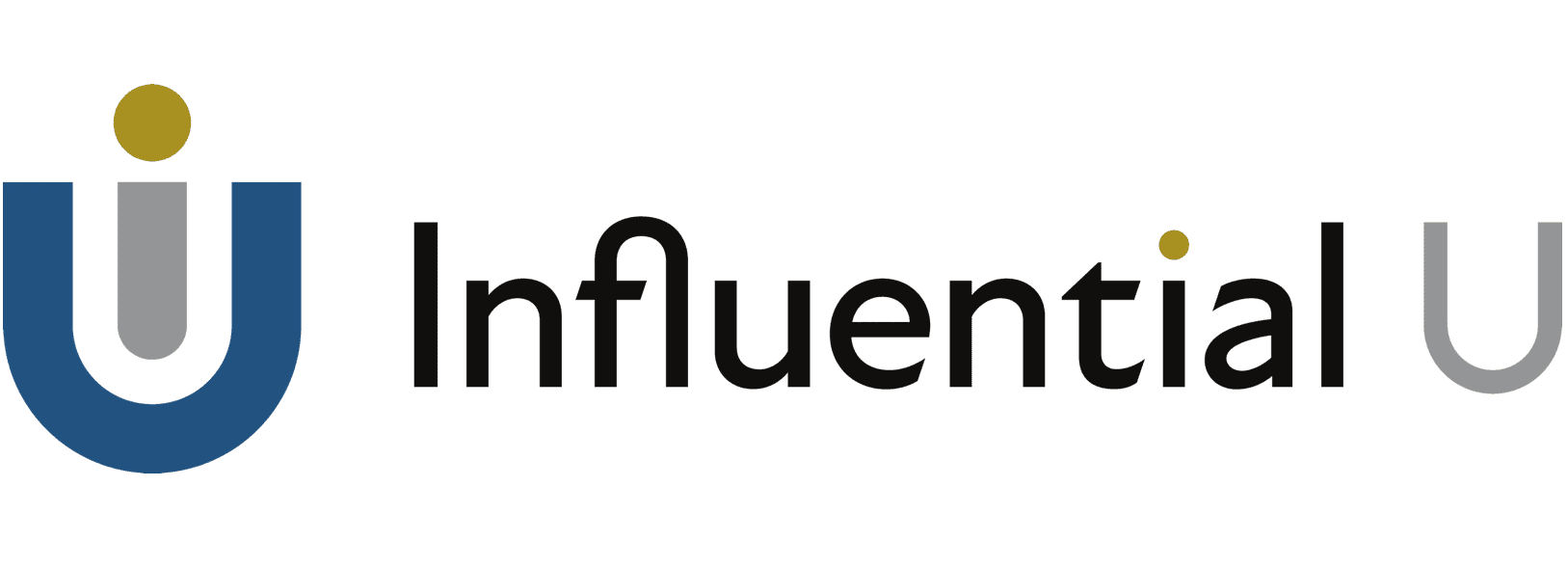You may suffer from “Independence Poverty.”
For most of my life, I believed that being multitalented and entirely self-sufficient was the ultimate achievement. Thanks to my parents, I immersed myself in Renaissance history during my Italian studies abroad and took pride in considering myself a modern-day Renaissance man, like da Vinci: well-rounded, adaptable, and capable of innovative thinking across different areas of expertise. While I still cherish my natural curiosity to explore new skills and ways to think, my life took a massive turn for the better the day I learned about the myth of being self-sufficient.
The concept of self-sufficiency is often glorified. Phrases like "if it’s to be, it’s up to me," "self-made success," and "If you want something done right, do it yourself." However, I discovered that an overemphasis on self-reliance can lead to a phenomenon known as "independence poverty." This condition arises when individuals, companies, or even countries attempt to function in isolation, cutting themselves off from the support, collaboration, and interdependence crucial for economic success and well-being. Independence poverty is not just an economic condition but a multidimensional issue that impacts our personal, professional, and societal lives.
This condition arises when individuals, companies, or even countries attempt to function in isolation, cutting themselves off from the support, collaboration, and interdependence crucial for economic success and well-being.
Self-sufficiency is more in vogue due to several factors: the cultural idealization of independence and the "self-made" individual, economic uncertainty driving people to seek control over their livelihoods, technological advancements enabling DIY approaches, and movements toward sustainability and homesteading. Additionally, the COVID-19 pandemic highlighted the vulnerabilities in global supply chains, increasing the desire for resilience and self-reliance. Lastly, a psychological drive for control and autonomy exists in an increasingly complex world. As a result, more and more people attempt to go it alone, driving themselves deeper into poverty (and loneliness).
The Illusion of Self-Sufficiency
The idea of being self-sufficient is appealing but fundamentally flawed. Culturally, we love our heroes. In books, movies, and television, they are too often male and glorified as single-handedly saving the day. Similarly, we often acknowledge single individuals for the work of hundreds, like Thomas Edison and the light bulb, ignoring the prior inventions, large teams, and support systems behind these successes (note, he didn’t invent it; he just first brought it to market). This single-hero mindset can isolate us, making it difficult to ask for help or acknowledge external factors that influence outcomes. The pressure to be the sole agent of success can be overwhelming, leading to burnout and a skewed perception of personal capacity.
The idea of being self-sufficient is appealing but fundamentally flawed. Culturally, we love our heroes. In books, movies, and television, they are too often male and glorified as single-handedly saving the day.
Furthermore, self-action (or self as overlord) produces "independence poverty," where one believes they alone can fix, cause, or do anything by themselves. In economic terms, independence poverty occurs when an individual, company, or country attempts to remove themselves from the market and sequester from the help of others. This self-isolation is the myth of autonomy and results in extreme labor and wasted resources. I’ll explain.
Insights from Matt Ridley
Matt Ridley, a British author and journalist known for his writings on science, economics, and the evolution of society, argues that self-sufficiency is simply another word for poverty. Ridley's notable works include The Rational Optimist, The Evolution of Everything, and How Innovation Works, emphasizing that prosperity is directly proportional to the degree of specialization and exchange. He explains that throughout history, humans have moved away from self-sufficiency towards working with each other, resulting in greater productivity and prosperity. This shift allows individuals to focus on tasks they are skilled at and utilize labor-saving devices, thereby becoming more efficient and innovative.
…throughout history, humans have moved away from self-sufficiency towards working with each other, resulting in greater productivity and prosperity. This shift allows individuals to focus on tasks they are skilled at doing.
Ridley illustrates this concept with extreme examples, such as the case of trying to live without any external trade. If everyone in America were to trade only within their households, they would be reduced to a subsistence level, producing everything they consume. This would be highly inefficient and time-consuming, as seen in projects like Thomas Thwaites' attempt to build a toaster from scratch, which took months and resulted in a costly, inferior product. Similarly, Kelly Cobb’s project to make a man’s suit entirely from local materials highlighted the inefficiencies and exorbitant costs associated with self-sufficiency.
Ridley emphasizes the transformative power of trade and exchange, arguing that these processes are fundamental to human progress. He explains that trade allows individuals to specialize in what they do best and benefit from the skills and resources of others, leading to increased productivity, innovation, and overall prosperity. Historical examples, such as ancient marketplaces and modern globalization, demonstrate how exchange lifts millions out of poverty by connecting people and enabling access to a broader range of goods and services. Ridley also highlights that exchanging ideas, much like goods, drives technological advancements and cultural evolution, promoting economic growth and innovation through free trade and open markets.
Historical examples, such as ancient marketplaces and modern globalization, demonstrate how exchange lifts millions out of poverty by connecting people and enabling access to a broader range of goods and services.
Modern-Day Struggles of Solopreneurs and Start-Ups
In today's entrepreneurial landscape, many solopreneurs and start-ups struggle with the isolation from trying to do everything themselves. Take, for example, the typical scenario of a tech start-up founder who takes on multiple roles—CEO, marketer, product developer, and customer service representative. While this all-hands-on-deck approach can be necessary in the early stages, it often leads to burnout and inefficiency. A study by CB Insights found that 23% of start-ups fail because they lack the right team.
In today's entrepreneurial landscape, many solopreneurs and start-ups struggle with the isolation from trying to do everything themselves…23% of start-ups fail because they lack the right team.
Solopreneurs, in particular, face significant challenges. A survey conducted by FreshBooks found that 60% of self-employed professionals report feelings of loneliness and isolation, which can negatively impact their mental health and productivity. These individuals often need help scaling their businesses because they lack the collaborative networks and support systems from which larger organizations benefit.
Another example is executives in high-stakes industries who often bear the weight of company success or failure on their shoulders. This can lead to a phenomenon known as "executive isolation," where leaders feel they cannot seek advice or share their burdens, fearing it might be seen as a sign of weakness. According to a Harvard Business Review article, this isolation can lead to poor decision-making and increased stress levels.
The Economic Dimension of Independence Poverty
Economically, independence poverty can be devastating. When an individual or entity tries to operate without external support, they miss out on the benefits of specialization and trade. In a market economy, specialization allows individuals and companies to focus on what they do best while trading for other goods and services. This creates efficiency and innovation. When a company attempts to be self-sufficient, it often spreads its already limited resources too thin, trying to manage all aspects of production and operation internally. This isolation leads to inefficiencies and hinders growth.
Building a toaster from scratch or making a man’s suit entirely from local materials results in costly, time-consuming endeavors that highlight the inefficiency of doing everything alone. This example is a microcosm of what happens when businesses or individuals try to do it all themselves. This misconception is often the difference between wild success and horrific poverty.
Building a toaster from scratch or making a man’s suit entirely from local materials results in costly, time-consuming endeavors that highlight the inefficiency of doing everything alone.
The Myth of Autonomy
The myth of autonomy perpetuates the idea that asking for help or relying on others is a sign of weakness. In reality, true strength lies in recognizing our limitations and seeking the help we need. A balanced perspective acknowledges that while we can significantly impact our surroundings, we are not omnipotent. Acknowledging the contributions of others and the myriad external factors at play can alleviate undue pressure and foster a healthier, more sustainable approach to personal and professional growth. This balanced perspective encourages us to seek help, value teamwork, and appreciate the complex tapestry of influences that shape our lives and outcomes.
I often observe people fantasizing about a future where they won’t need to rely on others for help, believing this will bring them true freedom and independence. They naively assume that this is the very definition of autonomy. In truth, autonomy is having more help than you need—a surplus of help. True autonomy involves leveraging your support and resources to achieve more remarkable outcomes, not isolating yourself from the support systems that can help you thrive. Innovation often converts scarce resources into abundant resources; this often occurs when one taps into many people's abundant and innovative thinking. The economic argument for diverse teams is compelling, with studies from McKinsey consistently showing that companies with diverse leadership and staff perform better financially.
They naively assume that this is the very definition of autonomy. In truth, autonomy is having more help than you need—a surplus of help.
A Path Forward: Embracing Interdependence
The solution to independence poverty lies in embracing the interdependence of mutualism, symbiosis, and reciprocity. It is crucial to recognize that we are part of a more extensive system and that our actions affect and are affected by others. This mindset fosters collaboration, innovation, and mutual support. In a business context, this means valuing partnerships and alliances, leveraging the strengths of others, and contributing to a network of shared success. On a personal level, it involves building solid relationships, seeking help when needed, and offering support in return.
Matt Ridley emphasizes the complexity and interdependence involved in even the simplest exchanges, such as creating a pencil. He explains that millions of people from different parts of the world and various supply chain stages contribute to producing something as seemingly simple as a pencil. This includes loggers cutting down cedar trees, miners extracting graphite, chemists creating the lacquer, and engineers designing machinery. Ridley highlights that no single individual possesses the knowledge or skills to create a pencil from scratch. This intricate web of specialization and cooperation illustrates modern economies' profound interconnectedness and the market's power to bring together countless contributions into a single product.
Millions of people from different parts of the world and various supply chain stages contribute to producing something as seemingly simple as a pencil.
Embracing interdependence also means redefining success. Instead of measuring success solely by individual achievements, we could consider the collective impact and the well-being of the communities we are part of. This shift in perspective can lead to more sustainable, inclusive, and fulfilling outcomes.
Independence poverty is a significant but often overlooked peril of our time. Understanding its implications and embracing a more interdependent approach can create a more balanced, connected, and prosperous world. True success is not about going it alone but about thriving together. Perhaps it is time to move beyond the myth of autonomy and towards a future where collaboration and mutual support are the cornerstones of our personal, professional, and societal lives.

AUTHOR
John Patterson
Co-founder and CEO
INFLUENTIAL U
John Patterson steers the ship at Influential U, boldly challenging the traditional, often myopic views of success in our hyper-individualistic era. He isn't afraid to poke fun at the archaic obsession with attributing every win or loss to single actors, calling out the industry’s penchant for oversimplified 'transactional' comprehension. Leading a crack team dedicated to innovating businesses and business ecosystems, John is all about integrating the personal with the whole system—because, let’s face it, no one wins alone.



